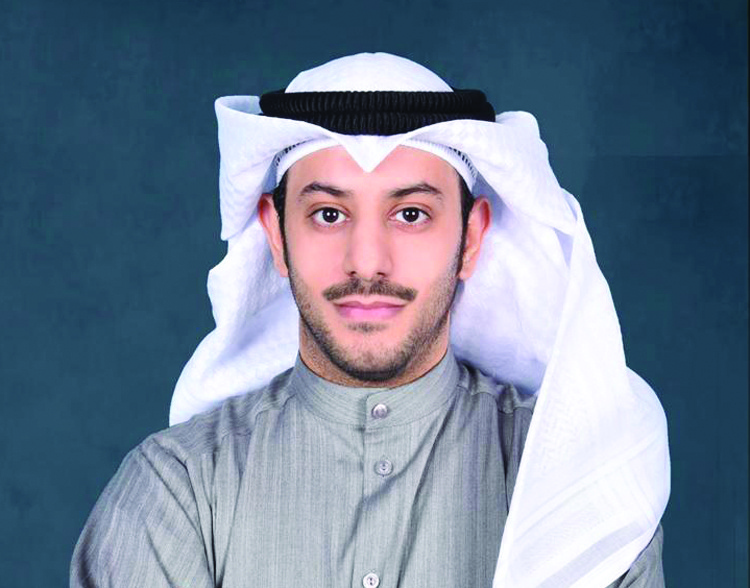 Attorney Abdullah Al-Otaibi
Attorney Abdullah Al-OtaibiBy Ben Garcia
KUWAIT: Kuwaiti professionals are interviewed by Kuwait Times to learn more about the nature of their jobs, and changes and challenges they have faced during the pandemic. The following are excerpts from Kuwait Times' interview with Attorney Abdullah Al-Otaibi:
Kuwait Times: How is the law firm business in the time of the COVID-19 pandemic?
Abdullah Al-Otaibi: While some law offices decided to close down due to slow business, other law offices continue to operate and are doing great. From March 12, 2020 till the end of August 2020, we were all closed. But we tried to carry on, since I have people working for me. I paid them salaries because I know they have families to feed.
We thought things will be okay when we reopened in September, but everything has been in disarray due to the recent curfews and lockdowns. Business is very slow and people are tired and broke. We needed to restart and pick up the pieces of what is left and continue. Our law office must continue to help others and those who are in need of our services, so we started receiving clients again. I would say business has increased, but the problem now is the fact that many offices in the court are operating at 30 percent capacity.
Even the shuoon (litigation department) for labor-related issues only receives 30 percent of transactions, so our cases are piling up and snowballing every day. We cannot do anything about it, as the delay is not from us but from government agencies. The courts too operate at 30 percent capacity. So even if you want to finish the case the soonest, the problem is we cannot set the time on our own.
I went to a court the other day, but it announced it has to close because COVID positive people were allegedly found there, so automatically they closed. Some areas in the justice building will operate, while other sections will be closed. This continues to date. We cannot blame the people in the ministry building because their reasons are all valid, to protect everyone against the virus.
Nonetheless, we are surviving. My lawyers and staff are paid regularly, thanks to clients who are still trusting us to act on their cases on their behalf. Thank God we have been winning cases too. It is our desire to help people win their cases and ultimately get their rights correctly and equitably.
Labor and family cases
Kuwait Times: Most of your cases are labor and family related. Why is it so?
Otaibi: Yes, but we also accept all other cases such as civil and criminal cases, corporate or company cases, and family or domestic cases. During the pandemic I noticed an increase in family issues, maybe because of the curfews and lockdowns. We receive several cases that need our expertise - husband and wife issues, inheritance issues, even divorce. There are issues of domestic violence too. All these are now piling up in our office and we need to do something about it.
We have received several labor-related cases of unpaid salaries, indemnities and some abandoned workers because their company has closed down. Our citizens have many issues of companies closing down, rental issues, release issues, etc. These are all connected because of this pandemic. Some are no longer repaying loans to the banks. The government wants to help our people, but I think the problem for decision makers nowadays is the fact that they have no idea when to give the money or until when they are going to give money so people can survive.
The government is doing its job to help our people in many ways. Some Kuwaitis are receiving salaries without work, but there are Kuwaitis who work for private companies who are not receiving their salaries completely. There are plans by the government to enact a law to help and support small and medium enterprises, but until now it remains a proposal. The problem is they want to wait until the pandemic ends, but of course we do not know when this will happen.
Hotels and restaurants have been badly affected; many decided to close down. I went to the biggest shopping mall in Kuwait and found many shops have shut down. I went to the oldest shopping malls in Kuwait City and only a few shops are open. Businesses need help. If the government needs workers, if they need business, they must do something for the people who are doing their best to create vibrancy in business.
Kuwait Times: Where did you graduate from and what was your first job?
Otaibi: I completed my law degree from Kuwait University in 2005. Then I studied sharia law in Saudi Arabia. When I came back to Kuwait, I joined the roster of new lawyers at the ministry of justice assigned to the Hawally and Ahmadi court at the judgment enforcement department. I worked there for eight years. The job was to enforce the law after the final verdict.
Then I moved to a family court, juggling my time at various family courts all over Kuwait to settle issues of families, divorce, marriage, certificate for Islamic marriages and inheritance issues. There, I stayed for over three years. These are the kind of jobs I readily accepted to hone my judicial skills and knowledge and practical experience.
Then I created this law office to help people six years ago. At that time, we started with just two lawyers, but now we are five. One is stranded in Egypt during the pandemic - inshallah he will come back soon. We have two mandoubs and two secretaries to help me with my work. Even though I have people with me, I prefer to attend to every call. Every day I receive 100 plus calls. Some calls I cannot attend, but I schedule meetings with my clients because I want to know about every single step being taken to ensure their rights are observed.
Sometimes I arrange meetings online via WhatsApp. Sometimes you have to remind clients to be patient because this pandemic is biting us all. The work at the ministry of justice and shuoon is very tricky now. We cannot easily get the barcode needed to be called by the judge. Every hour only 50 people with barcodes are allowed to enter.
I wanted to become a lawyer since I was little because I wanted to see myself in court. We have no lawyer in the family. I feel it is a very good profession. I want to be active - I don't want to just sit and wait for my salary. I want to practice and help many people in their legal battles. I am not a chai guy. I remember I had a client for whom I wasn't able to do enough. He paid, but I returned his money because I wasn't happy about the result as he lost his case. I didn't deserve the money given to me because I didn't focus much on his case.
Kuwait Times: Are you planning to set up more offices in Kuwait or GCC countries in the future?
Otaibi: That time will come, inshallah. Who doesn't want to grow and get a bigger and better operation or network? It's part of our vision to upgrade, but we have to survive this pandemic first.
Kuwait Times: What does this Ramadan look like and how is it different?
Otaibi: Till 2019, we worked two shifts in Ramadan, from 9 am until noon, then 7 pm till 10 pm. This timing couldn't be applied last year, and this year too because of the partial curfew. But we try to work 4 to 5 hours.











